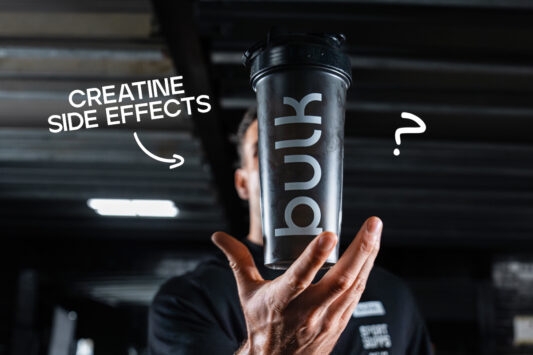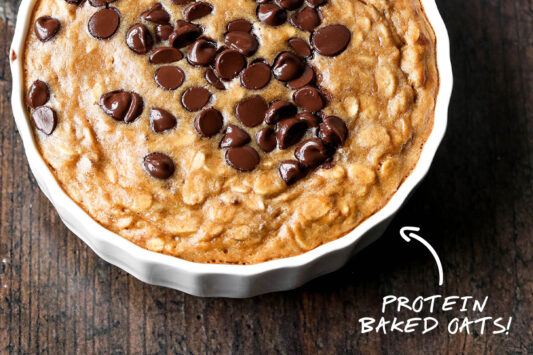When it comes to sport, particularly endurance events, you would be forgiven for thinking it’s all about getting as many calories in as possible i.e. delivering as much energy as you can, and to a certain extent it is. The problem with this method is that too often people assume that calories and volume of food consumed automatically translates to nutritional density and adequacy, when in reality it doesn’t. A large banquet from a fast food restaurant might deliver a tonne of calories, but unfortunately, very little in the way of vitamins and minerals.
This misconception is similar to one I faced when conducting my obesity clinics as a Clinical Dietitian in the NHS. Some Doctors (thankfully not all) would assume that an obese individual couldn’t possibly be malnourished with all those excess fat reserves. Consequently these patients weren’t considered a concern for underlying micronutrient (vitamins and minerals) and macronutrient (protein, carbs and fat) deficiencies …when in fact they are prime candidates. Unfortunately, many of the obese individuals I consulted were getting their calories from the likes of takeaways, some microwaveable meals and sugary snacks and drinks which deliver little more than calories! This provides them with a gross surplus of calories but a distinct lack of vitamins, minerals and fibre which increases their risk of…MALNUTRITION!
So, back to football, can you see how it isn’t all about indiscriminately pumping in the calories blindly hoping you will hit the spot from a nutritional balance point of view! There is far more to it than that, and this is what I am about to discuss with you. Here is what the International athletes and pro’s at Ipswich Town Football club might do to get them through a long, arduous season so that they reduce the risk of injury, overtraining and, of course, maximise performance.
Build a Base.
I’m talking about a nutritional foundation from which the players can build upon, without this all else is null and void. You can have the best pre-match meal, the perfect supplement strategy, but if all of this falls on an apple for breakfast, a biscuit for a snack and a can of coke for hydration, then any ergogenic benefit (performance enhancing effect) is obviously significantly reduced.
Meeting Your Calorie Requirements.
A nutrition base begins with calories, but unfortunately it is notoriously difficult to meet the calorie requirements of an elite athlete in a ‘clean’ and ‘balanced’ manner, it’s simply difficult to keep up with their physical activity levels. This isn’t surprising considering an average elite outfield player will train between 2-3 times a day, and regularly cover 10-13km during a match! It therefore stands to reason that energy expenditure is going to be rather high! Far too many people forget that football is an ENDURANCE sport, and quite often the worst culprits for this are the footballers themselves!
There are a few equations one might wish to use to estimate footballers calorie requirements, all of which factor in physical activity levels, total bodyweight and body composition (muscle, fat, bone, water). The one I like to use is derived from the National Institute of Clinical Excellence (NICE):
Total Bodyweight in Kilograms (kg) x 30 or 35
Example:
70kg x 30 = 2100kcal per day
70kg x 35 = 2450kcal per day
This gives you an approximate range of 2100- 2450kcal per day, but remember that this is only an estimate, it takes a skilled practitioner to then adjust and tweak calories over the next few weeks to find that ‘sweet spot’ for the player.
In the case of a pro footballer the 2450kcal is likely to be way below what they actually need, so I consider the players Physical Activity Level (PAL) and factor this in. A player’s calorie estimate based on bodyweight may need anything from 200- 1000kcal additional calories to meet energy expenditure, especially during pre-season meaning the 70kg player above may need to consume up to 3450kcal to meet the energy demands of professional football.
Remember, this calorie estimate might be a gross overestimate if you are overweight, so you might need to reduce calories by anything between 100- 1000kcal if you are doing this at home. If you’re doing this yourself however then be careful, calorie reductions can result in nutrient deficiencies if done incorrectly, so it’s best to get the opinion of a registered nutrition professional.
So now that we know rough calorie requirements, the next step is to determine how many of those calories come from carbohydrate, protein and fat (macronutrients).
Macronutrient Ratios.
When estimating macronutrient ratio’s we are basically calculating what percentage of the calories we consume should come from protein, carbs and fat. According to The Food Standards Agency, the average person might need a ratio of 50:35:15 carbs, fat and protein respectively, whilst some recreational bodybuilders or fitness models might prefer a 40:30:30 ratio to up the protein and reduce the carbs slightly. In contrast to this, a footballer will need significantly more carbs and protein than your average Joe Bloggs on the street, so I generally like to work at an approximate 60:20:20 ratio of carbs, fat and protein respectively, although this can change depending on the player.
Footballers are a different kettle of fish when it comes to carbs, what with an average elite player needing significantly more carbs in relation to protein and fat, particularly compared to the general public. Burke and colleagues suggest that a carb intake of 5–7 g/kg of body weight per day is a reasonable target to satisfy moderate training and daily activity as a footballer. This would then increase to 7–10 g/kg body weight per day for intensive training or maximal glycogen refuelling, which is what the above 60:20:20 macro ratio would deliver at a 3500kcal intake for a 70kg player.
Trust me when I say that this high carb intake doesn’t sit comfortably with some footballers wanting to maintain their 6-pack! For many of the lads I consult, upping carbs just seems crazy to them from an aesthetic point of view! Of course those carbs aren’t going to affect their abs in the slightest when the body is burning those carbs for fuel, rather than storing them as fat! Granted, an injured player and some goalkeepers might need to reduce carb intake proportionately to reflect their reduced physical activity levels, but generally carbs are a necessity and should comprise a large proportion of a footballer’s diet.
Why Carbs Are So Important.
Carbs can be broken down to glucose for an immediate energy hit because glucose is rapidly converted to Adenosine Triphosphate (ATP) and therefore energy. Glucose can also be readily stored in the muscle and liver in the form of glycogen which is your body’s primary energy reserve, ideal for sustained periods of activity.
Glycogen and sustained energy release.
According to the National Strength and Conditioning Association, an average body can store between 300-400g of glycogen in muscle, and approximately 70-100g in the liver, all of which can be used to greater or lesser degrees depending on the level of physical activity.
For example, when at complete rest our bodies burn very few calories, but almost all of which will be fat because beta-oxidation (breaking down fat for energy) takes a long time making it an inefficient energy source for intense exercise. When you are not exercising but not stationary either your body gets approx. 30% of its energy from glycogen and the remaining 70% from fat, but again total energy expenditure is relatively low.
When exercising this glycogen percentage can double in order to speed up the delivery of energy to the working muscles and organs, but this is entirely dependent on the intensity and duration of exercise.
Protein.
Recovery, recovery, recovery…protein is all about muscle preservation, tissue repair and hypertrophy (muscle growth). Football takes its toll on your body, you only have to take a look in the Physio’s clinic of any football club to know that’s true!
Protein requirements are higher in a footballer than the general public, but may not be as high as the average bodybuilder thanks to the underlying muscle mass and nature of exercise. It is imperative that a footballer’s protein intake reflects this because a diet that places too much emphasis on protein will inherently eat into the amount of calories you can get from carbs, and a diet that is too low in carbs will eventually lead to muscle catabolism in the seeking of glucose. Yep, when the body is low in carbs it has very little choice but to eat into the muscle and convert its glucogenic amino acid sub- units into glucose…the complete opposite of what we’re trying to achieve!
Protein intake must satisfy muscle protein regeneration after exercise so that the micro tears brought on by stress from the pounding nature of running and quick changes in direction aren’t afforded the time to develop into full blown strains or tears.
Protein Requirements.
Based on the above macronutrient ratios a player’s protein intake should be comprised of approx. 20-25% of total daily calorie intake, so for the 70kg player this would equate to 175g protein per day (2.5g protein per kg body weight). This amount of protein should be adequate to replenish muscle, support recovery, and even contribute to energy.
Quality Sources of Protein.
Protein is protein, right? Well, yes and no… protein that is derived from dairy (whey and casein), meat, pea or rice to name a few examples all contribute to nitrogen levels in the body (the measure of protein balance within the body), but there are some key things to remember with protein.
Not all protein sources are made equal, although any protein source is useful, the overall quality of a protein source is measured on the amount of essential, or indispensable (to use the proper term) amino acids it delivers. For example, an egg delivers all 9 of the essential amino acids in one serving, conversely a 100g serving of white rice delivers approx. 3g protein, but is lacking in the essential amino acid Lysine. This is known as a ‘limiting amino acid’ i.e. the amino acid that is missing to make rice a complete source of protein, so basically, if you were to consume a cup of rice or a bucket load of rice… you would still be missing out on Lysine. Whereas you could eat just one egg and you would get 6-8g protein as well as all of the 9 essential amino acids phenylalanine, valine, threonine, tryptophan, methionine, leucine, isoleucine, histidine AND lysine. So it is important that the footballers are consuming a variety of protein sources to ensure total protein and amino acid balance for optimal muscle recovery, repair and energy.
Nutrition Supplements.
The exceptionally high energy expenditure of a professional footballer and indeed many recreational/semi-professional players can make it very difficult to get enough nutrition in through food and drink alone. Although Ipswich Town FC do not have a specific supplement supplier per se, I will use BULK POWDERS™ supplement range as an ideal example of what I might recommend to the players.
In order to keep those all-important glycogen levels topped up I will often prescribe the use of a carbohydrate, electrolyte and BCAA beverage similar to Complete Hydration Drink™ to manage hydration as well as topping up carb and amino acid levels. In addition to this, I may think the player warrants a few extra grams of quality protein to keep them in positive nitrogen balance, so the addition of a protein supplement such as INFORMED WHEY® RTD would do the trick here.
Some of the players like to add in a resistance training session 3-4 times a week, so a pre-workout supplement similar to ELEVATE™ would do the trick here. As mentioned at the beginning of this article, it is all very well getting the calories and macronutrients sorted, but if you are missing out on critical vitamins and minerals, then the body will have little choice other than to self- cannibalise in order to get the vitamins it so desperately needs for maintaining homeostasis (a harmonious physiological environment). A daily supplement like SPORTS MULTI AM:PM™ should do the trick here, easy to consume and complete in all of the essential vitamins and minerals needed by any human, not just footballers.
About the Author
Tom Irving Nutrition is a highly respected Performance Nutritionist, qualified Dietitian and active Nutrition Consultant with vast experience in the nutrition and supplement industry. Tom has devoted his adult life to nutrition. He studied it for nine years which saw him complete two degrees, the first in Sports Science and the second in Dietetics from one of the most highly respected Dietetics Universities in the UK.
















